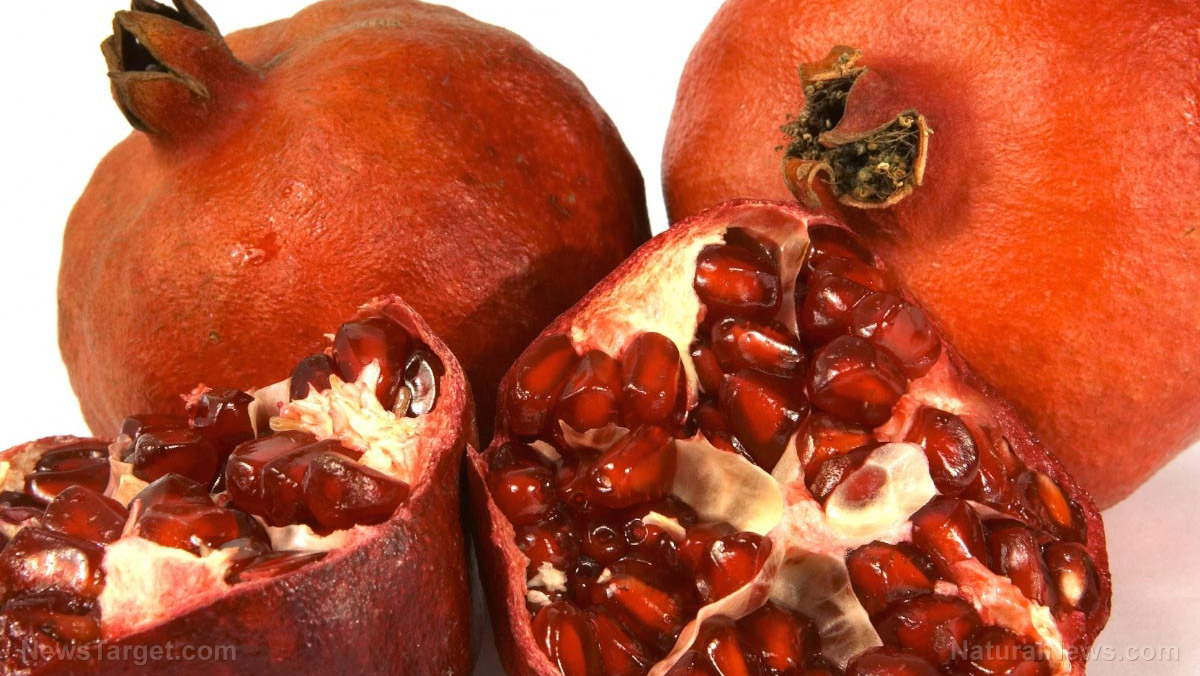Following a plant-based diet and reducing sulfur amino acid intake found to lower heart disease risk
06/14/2022 / By Zoey Sky

Many health experts recommend plant-based diets to those who wish to improve their well-being. According to a study, eating more fruits and veggies can also help lower the risk for heart disease.
The study was conducted by researchers from Pennsylvania State University and published in the clinical journal EClinicalMedicine.
The researchers, led by John Richie, analyzed the diets and blood biomarkers of more than 11,000 participants from the Third National Examination and Nutritional Health Survey. According to their blood work, volunteers who consumed foods containing fewer sulfur amino acids had a lower risk of cardiometabolic disease.
For the study, the researchers compiled a composite cardiometabolic disease risk score based on the levels of certain biomarkers in the volunteers’ blood such as cholesterol, glucose, insulin and triglycerides.
People who reported having either congestive heart failure, heart attack or a reported change in diet due to a heart disease diagnosis were excluded from the study. Those who reported a dietary intake of sulfur amino acids below the estimated average requirement recommended by the Food and Nutrition Board of the National Academy of Medicine were also excluded.
Sulfur amino acids and heart health
Based on the results, diets with reduced sulfur amino acids, which occur in protein-rich foods like dairy, meats, nuts and soy, were linked to a lower cardiovascular disease risk.
The researchers also discovered that the average American consumes almost two and a half times more sulfur amino acids than the estimated average requirement.
Amino acids are the building blocks of proteins. Sulfur amino acids, which include cysteine and methionine, are a subcategory with many roles in metabolism and health.
For the study, researchers gathered data about the volunteers’ diets by doing in-person 24-hour recalls. They then calculated nutrient intakes using the U.S. Department of Agriculture Survey Nutrient Database.
After accounting for body weight, the researchers discovered that average sulfur amino acid intake was at least two and a half times higher than the estimated average requirement. The findings also showed that higher sulfur amino acid intake was linked to a higher composite cardiometabolic risk score after accounting for potential confounders like age, sex and history of diabetes and hypertension.
Data also showed that high sulfur amino acid intake was linked to every type of food, with the exception of grains, vegetables and fruit, which highlights the potential benefits of a plant-based diet.
In a statement, Richie explained that “diets restricting sulfur amino acids were beneficial for longevity in animals.” He added that this study provides the first epidemiologic evidence that “excessive dietary intake of sulfur amino acids may be related to chronic disease outcomes in humans.”
Tips for eating right and reducing heart disease risk
Following a balanced diet is key to maintaining heart health. If you are struggling to stick to a plant-based diet, the tips below can help:
Incorporate dietary fiber into a heart-healthy breakfast
For breakfast, eat foods high in fiber and low in unhealthy saturated fats like fruits, vegetables and whole grains. (Related: Add fiber-rich chia and flax to your diet and boost your heart health.)
Steel-cut or rolled oats are also a healthy, filling option for breakfast because they are whole grain and full of soluble fiber that can help you feel full longer. Oats may also help to lower blood cholesterol levels, which is key to decreasing the risk of heart disease.
It can take some adjusting, but it’s best to avoid breakfast foods full of saturated fat and refined grains and sugars that are bad for you, such as bacon, sausage, pancakes, waffles and sugary cereals. These foods can increase bad cholesterol and triglyceride levels, which are bad for your heart health.
Make a lunch that includes heart-healthy fruits and veggies
For lunch, your healthy options include a salad, sandwich or a hearty soup. But keep in mind that not all salads are healthy, especially if you use toppings like bacon, cheese and croutons, which can add a lot of fat and sodium.
Make sure your salad is heart-healthy by using a variety of greens and fresh veggies. For a natural crunch in your salad, add a bit of nuts, like almonds or walnuts.
For the dressing, use only two tablespoons of a vinaigrette instead of creamy dressings.
If you want to eat a sandwich for lunch, pair lean meat with whole grain bread. Add a low-fat cheese like Swiss cheese to limit your sodium intake.
Give your sandwich a satisfying texture by adding veggies like cucumber, lettuce, or tomato. However, you should go easy on the pickles and condiments, which are sometimes full of sodium. You can also add some avocado or olive oil-based mayonnaise.
A low-sodium, broth-based soup is another great option for lunch. Choose a soup with lots of veggies, which can fill you up with relatively few calories.
Making a healthy soup can also promote weight loss, help you maintain a healthy weight and help bring down blood pressure, cholesterol and triglycerides, all of which are key to your heart health.
End with a lean protein and veggies for dinner
When it’s time for dinner, try to fill half your plate with fruits and vegetables.
If you’re including meat, choose something lean like skinless chicken or turkey breast. When buying ground meat, look for meat labeled 93 or 97 percent lean on the package and use only three ounces (the size of a deck of cards).
Fish is another heart-healthy superfood and it’s full of protein and heart-healthy fats called omega-3s. According to the American Heart Association, omega-3s can reduce your risk of heart disease and stroke.
Try to eat fish at least twice a week. You can increase your fish intake by replacing one red meat meal a week with fish like mackerel, salmon, sardines, or tuna.
It’s best to avoid fried foods and foods with heavy cream or cheese sauces. Keep your heart healthy by baking or grilling meat instead.
Follow a balanced diet and eat lots of fruits and veggies to boost your heart health.
Watch this video to learn another way to lower the risk of heart disease.
This video is from the Natural News channel on Brighteon.com.
More related stories:
Why you should be paying attention to this amino acid if you want a healthier heart.
Misguided scientists declare all-natural amino acid compound in red meat to be ‘bad for the heart.’
Daily consumption of roselle can improve heart health.
Sources include:
Submit a correction >>
Tagged Under:
#nutrition, alternative medicine, food is medicine, food science, fruits, heart disease, heart health, longevity, nutrients, organics, plant-based diet, prevention, research, vegan diet, vegetarian diet
This article may contain statements that reflect the opinion of the author




















